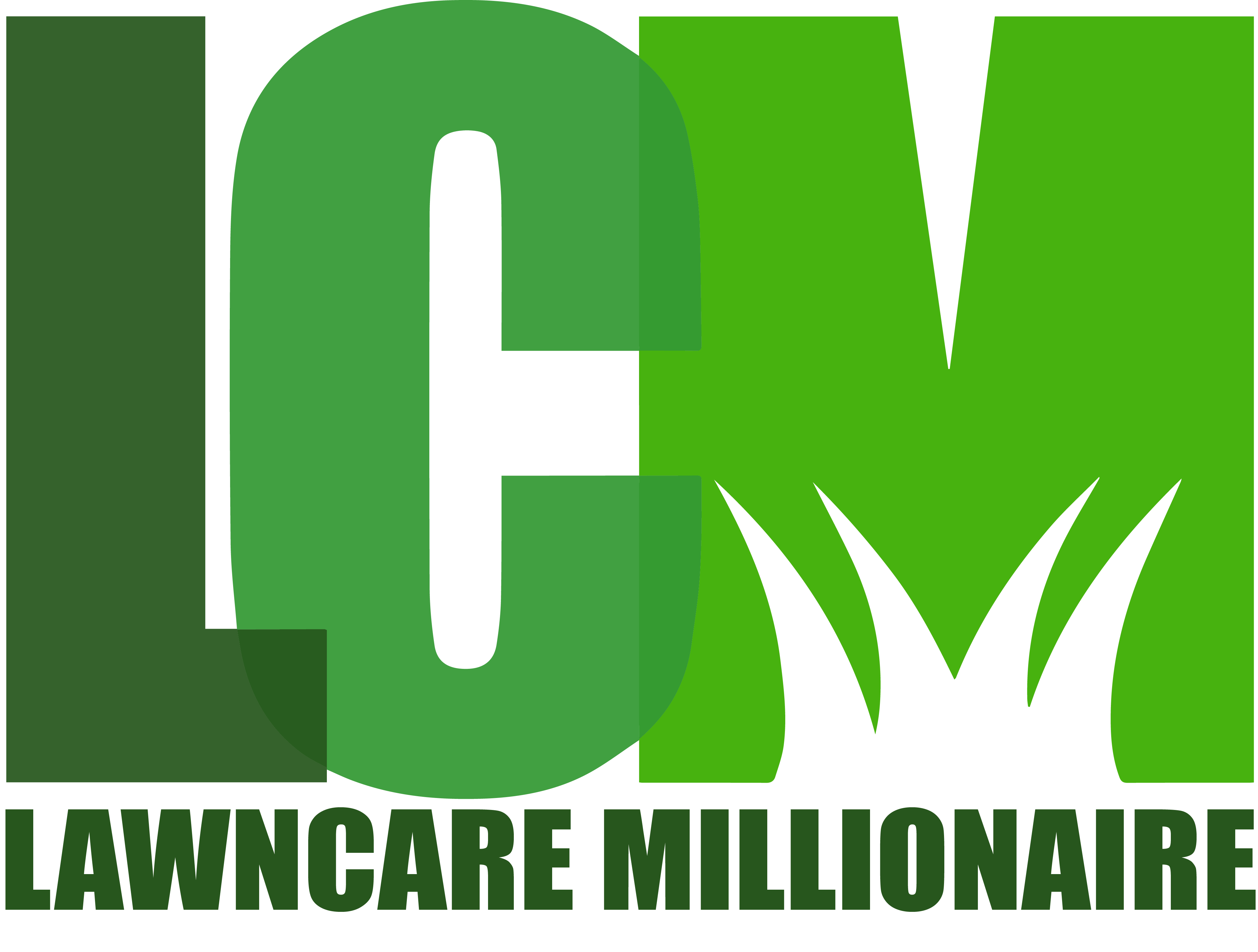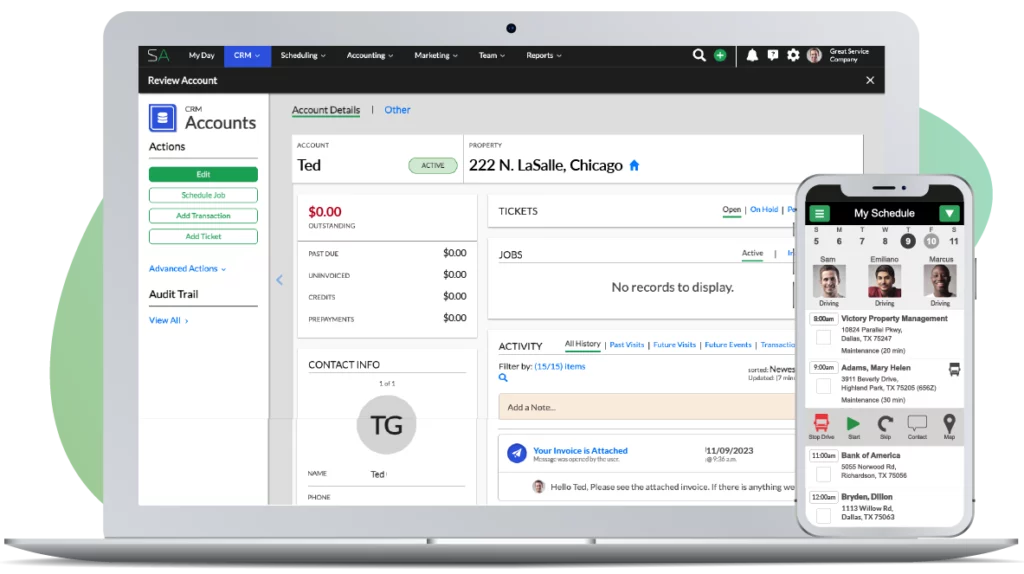Jonathan answers, “How much money do I need to save to retire and still be able to keep my lifestyle?”
Hello. I’ve got a question that I’m going to answer, and first I’ll read it to you. My question is, “How much should I sock away for the future when I retire? I’m 40, and I will be starting a lawn care business part-time next spring. I know there are a lot of factors here. Thanks.”
This is another one that with a lack of information, it makes it very challenging for me to answer it, but let me throw some stuff out at you and give you some ideas.
Probably when you were younger, you’re imagining, and I was this way, I thought, “Man, if I could just make $90,000 a year, and if I could save a million dollars, boom, life would be first class, like, I’d be set.” Then you make ninety grand and then you’re like, “Uh wow, this ninety grand doesn’t buy nearly as much freedom and fun as I thought it would, and oh man, now I’ve got a wife and kids, and wow, that’s not as much as I thought it was.” And, a million doesn’t pay so well anymore, so let me give you an example.
Back when I was in my early 20s and I had money market funds with Vanguard, I think I was making like 5% in my money market fund, maybe 6, it was great. I don’t remember the exact amount but it was really good. It was like 5%. I still have that same money market fund today, it’s one of many, and in that fund, I think I make .018%…not even a quarter of a percent. I have another money market fund that they’d only let me put so much money into it, it capped out, and I earn 1% on that. It’s my best by far. In fact, I think they use as a loss leader to get business, because at the end of 2015, I no longer will get 1% of my money in that anymore. Just think about that math. Let’s just say it’s 1%. If you saved a million dollars, what’s 1% a year on a million dollars? You can’t live on that.
Now you can’t even keep a 1% return on money right now in a money market fund. Not that you’d keep all your money in a money market fund, but it’s just very conservative. If you go to something like Treasury Bills with the US government, super, super safe, because I believe by law, if they can’t repay them, they tax the public, so they’re considered ultra-safe, but they don’t pay. The return is horrible. A CD with the bank…horrible returns. None of these things on a million dollars would pay you enough money to even live. You could not survive. You probably couldn’t even pay your rent or your mortgage with the money on that.
So you have to have your money in assets that are growing, and they have to be diversified across a bunch of different stuff. They can’t just be in ultra safe things; which brings risk into the equation, that something could go wrong. That money that you had spent years and years building, something bad could happen to it; it’s not there when you need it. Or 2008 could happen and the absolute worse time to be pulling money to live on, is ’08 when everything’s been cut down by 40%. Now you’re pulling your principal when it’s only got 60% of the original value. I could go on and on. There’s all these factors to consider.
The million dollar dream is flawed. It’s not enough. So what I would suggest at a minimum, which for most people they’re going to throw up their hands when they hear what I’m about to say, but for me, the minimum number is $5-million. But it also comes back to, “What do you expect out of life, and what is the lifestyle you want to live, and travel, and cars, and homes, and things of that sort. Five million, truly is not an extravagant lifestyle, but it’s a pretty good one. It’s a really good one, but the return on that if invested in a somewhat safe fashion is enough that you could continue having a pretty good life, that might be equivalent to the times when you owned a company and it was making hundreds of thousands of dollars a year in profits.
For me, the $5-million isn’t enough to do what I want to accomplish, but for most people, it truly could be enough. It’s just I kind of have a little bit bigger goal than that. But that could be flawed. You may say, “Boy, that’s crazy!” But $5-million is kind of that number. What happens when you hear $5-million? You hear $5-million, you’re like, “I’m never going to get to $5-million. I mean, that’s impossible. It’s going to take me forever. I’m 40 years old. How am I going to save $5-million after tax?” And some of your money could be pre-tax.
That gets into what I really want to mention. Here are a couple things: One, the way I believe you think about this is, this is the beauty of building a company, and this is the beauty of building a company where you’re not the person doing the work, because imagine being the person doing the work when you’re 60 or 70. It’s not going to happen. Then you better have that money to live on. Another thing to keep in mind is as technology and medicine, everything continues to improve, I think it’s realistic to believe that we’ll live longer; five years, ten years longer than the average.
I don’t know what that is, but we will continue to live longer, even at 40, you have plenty of time in terms of time horizon for a tremendous number of things to improve in society, that it’s possible that the average life expectancy will have increased by five or more years, by the time you get into your 80s. That requires more money, so back to my point. If you don’t commit to learning and doing what it takes to build a real company that has a team, and it’s not just you, at 60 and 70 years old, how much energy and motivation will you have to keep up with the ridiculous amount of change that’s happening in society, as you’ve got to continue to think creatively about your business, and as you have to continue to year after year, mold your business to keep up with all the disruption and the change.
So you want to build that team around you to help you. If you do that, this totally changes the amount of money that you have to have saved. Totally. This $5-million requirement isn’t the same, because really the reason for $5-million is so that when you invest it, it can return to you some amount of money. I didn’t do the math, but let’s just say it’s two hundred grand a year. The real focus here, is not the $5-million, the real focus is the return you get each year; the money that you make each year, so that you can live.
Your investment is spinning off cash. That cash is what you live on. The real goal is the two hundred, not the $5-million. So what you first do is you figure out how much money do you need to live on in the future? Remember, there’s going to be inflation and things in the future, so the value of money continually declines, so in the future, how much do you need to live on? That’s what you’re trying to get to. Five million just is the principal that you need, so that after your return on investment on that $5-million, it returns to you $200,000 to live on.
Now could you create a business with a team that runs itself, that doesn’t require all of your time, that maybe when you get older, you only have to work in that business 15 hours a week, and that business returns to you $200,000? That’s the same thing. Your business is an asset; it’s an investment. What I think the real approach here is, how can I build a company that is a real company, which is very different from what most people build, because they’re unwilling to learn, do the work, or go through the short-term pain to better themselves, to grow, and to solve problems?
If you’re willing to do that, then this business could make you, let’s call it, $150,000 a year. It could be way better than that, but let’s just call it $150,000 a year. And you have decided that you want to live really well into retirement, and so you want to make at least $200 a year. Now the amount of money you need invested is way smaller. Maybe it’s a million and a half. I’m making up numbers. If you do my math, it’s going to be screwed up; I’m making a point. Now maybe all you need is a million and a half, because the million and half will spin off another fifty. Or maybe you need a couple million, so that that couple million will spin off a hundred a year, and you can use fifty of that to live on, and another fifty keeps getting saved; so that you’re still saving every year as you go into your retirement.
When you think about it that way, that your business is an investment, and it can generate a big portion of your retirement income, and then your money saved can make up the difference, or if you could accomplish it where your business pays for all of your retirement, and your investments just continue to grow, and grow and grow, then you’ve really built a security blanket, in a sense. You’ve really set yourself up to be somewhat protected. Then too, when you’ve done that with your business, you don’t have to take as many risks on your investment to get a big return. You can play it a little more safe. Yes, you’ll get lower returns, but that the probability of something happening to your stash is way less.
That’s the way to really think about it. Don’t just think about, “Yeah, I need to build this big amount of money so I can be done, and I’ll live on that money.” What if your business is thought of just like investing in stocks, or bonds, or real estate, or whatever, and it’s spinning off cash that you live on.
A couple things. I read a book awhile back that will do a better job explaining this. I read this book, I was like, “Hm, yeah.” I was kind of nodding as I was reading it. It did a good job of explaining some of what I just said, which I had learned years and years ago, and I think that Tony Robbins, he wrote a book called, “Money: Master the Game,” and he does a really good job of explaining that.
In fact, he has a calculator you can go to to put in some things about your home, your cars, your vacations, all these different things you want. He’ll say, this is how much money you need to make per year, and then it will say, “This is how much money you need to save.” I think it even gives the business analogy in there that I just gave. He does a good job explaining it. I recommend that book. I thought it was good.
Regardless of what you think of Tony Robbins, and I actually don’t have a problem with him. I think he does a tremendous amount of good. But some people don’t like him. I think that book is a solid read. I recommend that to everybody. I think he does a really good job of explaining some financial topics at a more simple level, that we all can understand.
One other book, so for Academy, for our elite members in Academy, one of our members asked what I thought of the book called, “Profit First,” by a guy named Mike something. His last name starts with an M. The cover has a pig on it, like a piggy bank, a pink pig. I’m only half-way through the book. I haven’t formulated my opinion yet. I will say that I’m on the fence on a few things, but I’ll have my opinion when I’m done, and I can kind of think through it. I will say, that he has said a ton of things in that book that I completely agree with, that I’ve said, probably on video and to others a million times, and I feel like I’ve agreed with him on a lot of stuff.
The only thing I’m not quite sure about is, can I grow companies as fast using his method as I have with my approach? I don’t know. I’ve got to think through that. Where I’m going with this is, that book is probably a solid read. I can’t say for sure if it’s a great book, or my favorite, but thus far, I think it’s a no-brainer to read it, and think about it. So many of us build these companies that don’t generate a lot of money, or a lot of profit, and I’ve probably said it before, that’s the entire point of the business. It’s gross revenue is not the point and he makes that argument.
If you get your business set up properly, and you build it properly, so that it’s someday sort of running itself, or running very smoothly with minimal involvement from you, and it’s spinning off a lot of profit, you’ll very quickly accomplish the goal I’ve talked about. You don’t have to wait until you’re 65. You can get there in five, 10 years, or maybe shorter, depending on how aggressive you are. So those two books would be good reads to think through your goal of building enough money to retire, and be very successful.
I hope this helped. Good luck with that.



